PROVINCETOWN — There are no “off weeks” in August. Parking lots are full. Beaches swell with visitors chasing a waning summer sun. Squads of tourists putter down Commercial Street, in and out of shops, restaurants, and bars, causing a commotion that’s both thrilling and fatiguing to locals.
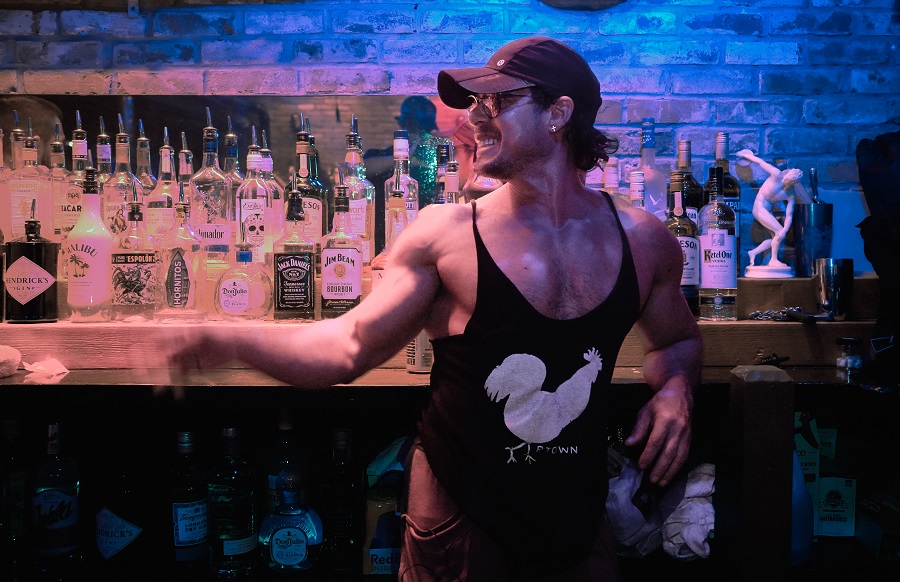
Amid the chaos, workers hustle — often behind the scenes — to maintain the August vibe. Among them are the barbacks, the indispensable assistants to bartenders and the unsung heroes of every place you can order a drink. Their stories are a testament to the diversity, resilience, and grit that gets Provincetown through this busiest time of year.
“I know we’re not curing cancer here,” says Brandon Gonçalves, better known as Quiche, as he throws a big bag of trash into a dumpster behind the Gifford House, “but people expect a lot from me.”
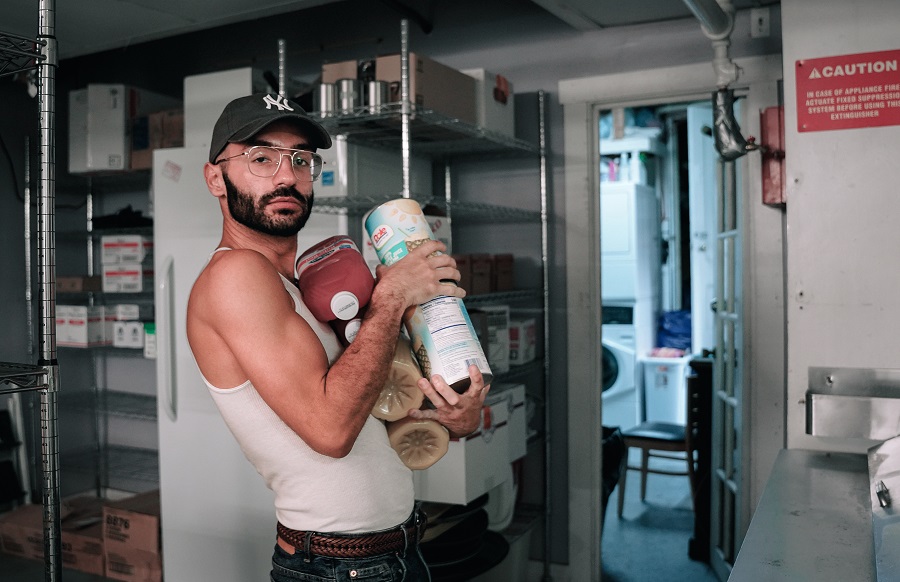
This is Gonçalves’s third summer working in Provincetown and his first as a barback at the inn’s Porch Bar. Gonçalves’s cheerful way makes his job look fun, but the late nights take their toll. Filling an ice bucket in the back kitchen, he says, “Sometimes I just want to cry.”
Still, for Gonçalves, as for most service workers in town, the bars and restaurants where they serve are both workplace and community. “My favorite part of the night is seeing friends who come in,” he says. “If they’re having a good time, then I’m having a good time.”
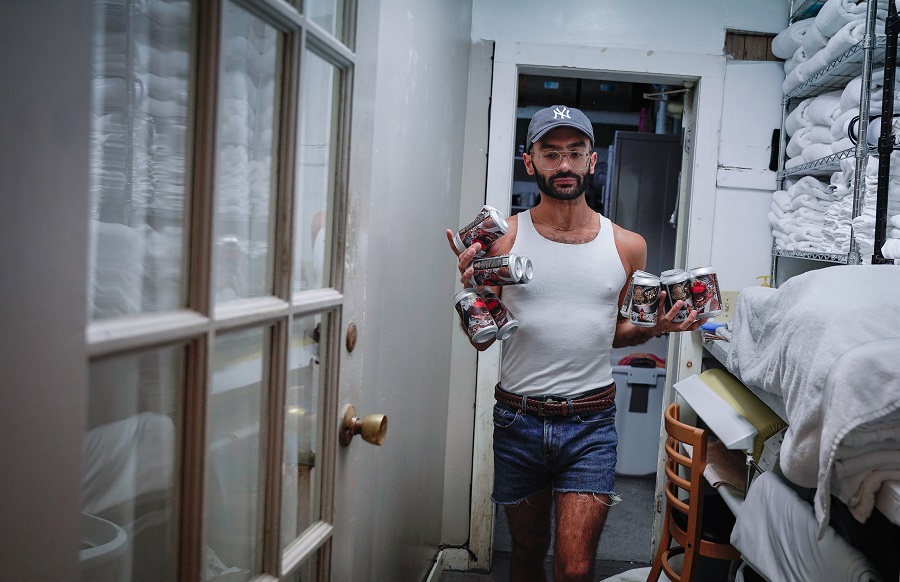
Across town at the Harbor Lounge, Ludmila Panico, a J-1 student from Romania, stocks glasses and fills plastic mixer bottles with an earnest smile. “People are coming to the bar to be happy. And we’re happy when we see them happy,” she says.
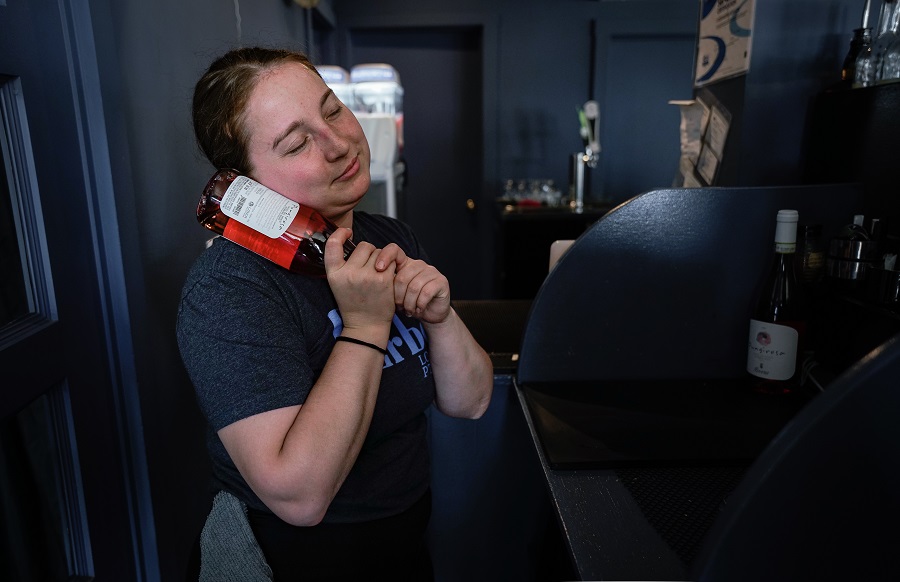
It’s not always easy, though. Panico says that navigating an English-speaking world, particularly in the fast-paced environment of a bar, poses challenges. There was the time a customer barked, “You’re supposed to know English.” She recounts the story in English that is quite good.
Each shift is a lesson, Panico says. “I’m thinking about opening my own bar, so this is going to be a good experience for me.” Already, she is starting to take bartending shifts.
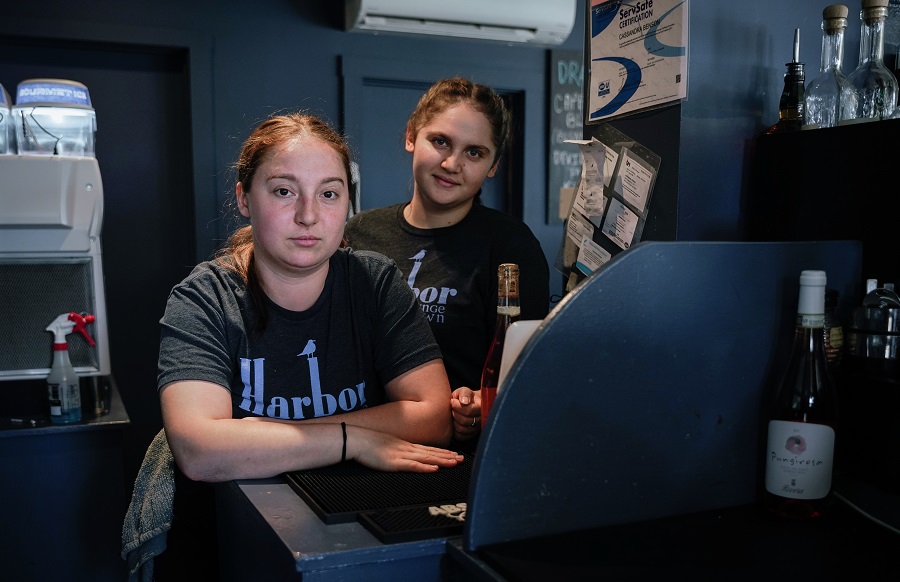
Carlos Varella, who is spending his 10th summer in Provincetown working as a barback at the Atlantic House, is the backbone of the historic bar and dance club. He lives nearby on Atlantic Avenue and starts his day at 7 a.m. First up, he cleans the entire place — the bathrooms, the famous dance floor, and all eight bars. “I get four hours of sleep,” he says. “When I’m not working, I’m sleeping.”
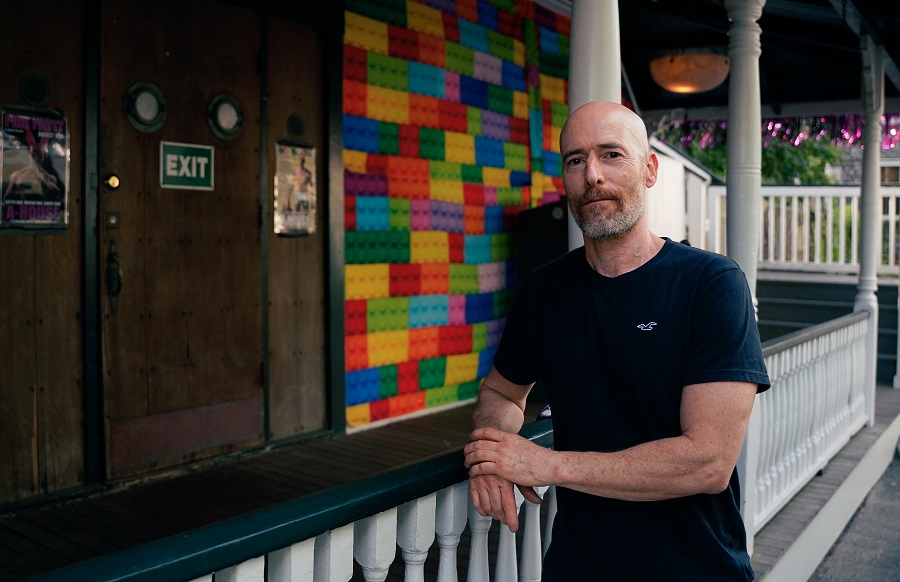
After cleaning the bars, Varella stocks them for the night. “The bartenders used to make a list for me of what they needed. But now they don’t have to,” he says. “Everything’s already there for them.” Varella moves through the A-House with confidence. He takes the work seriously, especially during the peak summer weeks. “I’m always afraid that we’re going run out of ice because we only have two machines,” he says.
Outside the bar, Varella shows off his decorations for Carnival. This year’s theme is “Land of Toys,” so he’s wrapping the exterior walls with a colorful silkscreen of printed Lego blocks. Varella doesn’t stop.
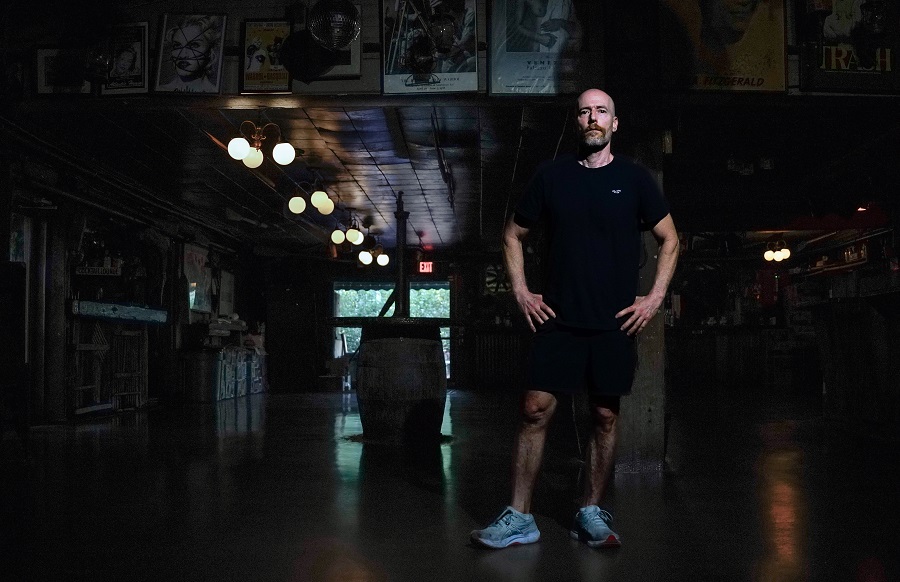
“I haven’t worked this many hours for a long time,” says Daniel Ivanov Zhelyazkov, a J-1 student barbacking at the Crown & Anchor. In Bulgaria, he works as a home security technician. “Standing up for 14 hours straight and then doing it again the next day is something I wasn’t accustomed to,” he says while scraping scraps of food into a garbage can behind the outdoor bar.
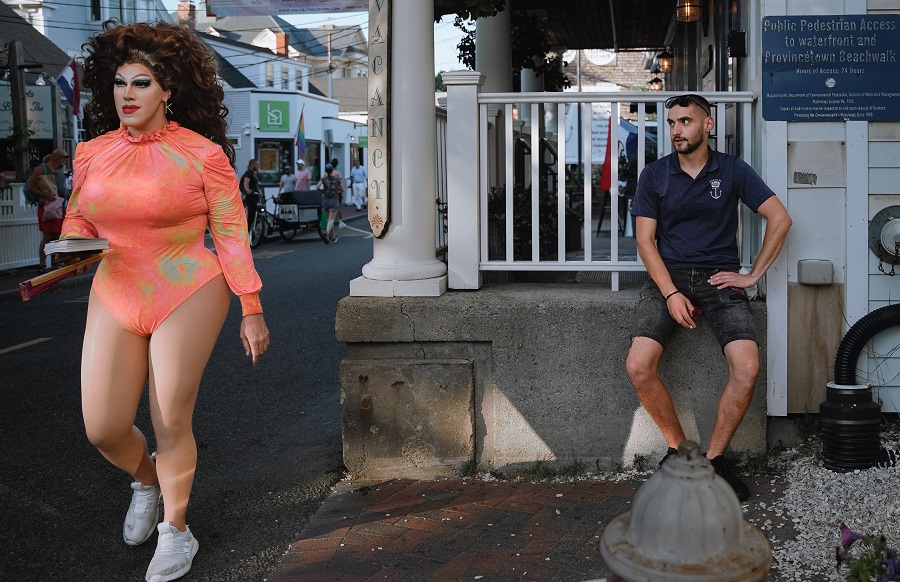
“I was a bit scared when I came here,” Ivanov Zhelyazkov says. “Not that I’m homophobic or anything. I’m just not used to this circle of people.” But over time, he’s adjusted. “They’re all good people,” he says.
Back at Gifford House, Henrry Bravo, a barback at Purgatory, takes a moment to enjoy some microwaved tuna mac and cheese during a brief break. “It’s like working on vacation,” he says. Originally from Venezuela, where he worked as a personal trainer, Bravo now lives in Ft. Lauderdale and is spending the summer in Provincetown to enjoy the scene and make some extra money.
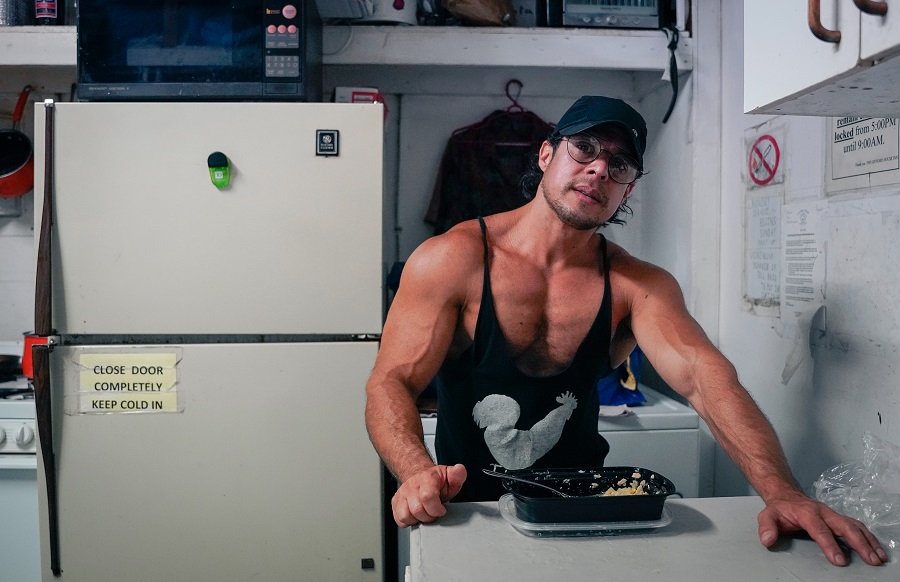
“I am tired,” Bravo says. “I miss my house. I miss my dog. I miss everything.” At times, the language barrier is challenging, and he says it prevents him from taking on better-paying work like bartending. But, he says, “I feel good. I like my job. I love this country.”



